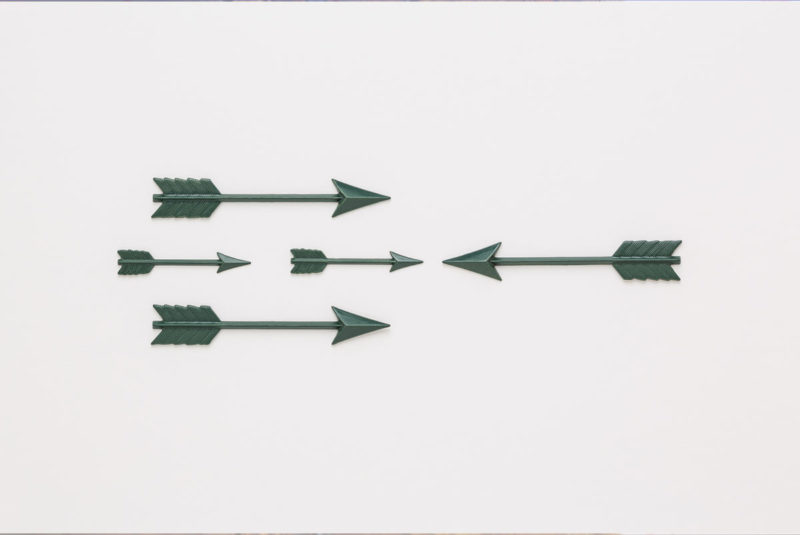Ready To Buy a Home?
Get Approved to Buy a Home
Rocket Mortgage® lets you get to house hunting sooner.
Sometimes you need money fast. Maybe you want to buy a new home, but you haven’t sold your old home yet. Or maybe you have your eye on an investment property or a home you want to flip.
If you need money for a real estate purchase and don’t have time to wait on mortgage approval, a hard money loan can help. But what is a hard money loan – and is it right for you? Read on to learn more.
The Short Version
- If you need money for a real estate purchase and don’t have the time to wait for a mortgage, a hard money loan can help
- Hard money loans are often considered loans of last resort. In fact, they’re called “hard money loans” because they’re often used when you can’t get financing any other way
- A hard money lender won’t lend you enough money to cover a property’s purchase price. In fact, they’ll usually only lend 60% – 80% of a home’s loan-to-value (LTV) ratio
How a Hard Money Loan Works
A hard money loan (sometimes called a private money loan or tough loan) lets you borrow against the value of a property you own or plan to buy.
The key benefit of a hard money loan is that you can get money in less time than you would with a traditional mortgage loan. While it usually takes between 30 – 45 days to be approved for a traditional mortgage, you can be approved for a hard money loan in as little as 1 week.
While loan terms will vary by lender, most hard money loans usually require smaller monthly payments. Borrowers usually make interest-only payments or pay a portion of the principal, with a balloon payment due at the end of the loan term.
A hard money loan is based on the idea that you’ll either sell a property before the loan is due or you’ll have earned enough money from the sale or rental of a property to pay off the loan.
Who offers hard money loans?
Traditional lenders, like banks, credit unions or online lenders, don’t offer hard money loans. If you want a hard money loan, you’ll have to get it from a private lender or investment company that specializes in short-term loans.
Because private lenders and investors aren’t regulated like banks or other mortgage lenders, hard money lenders aren’t required to follow the same financing guidelines that govern traditional loans. If you’re looking for a hard money lender, do your homework and ask your real estate agent or a trusted real estate professional for a recommendation.
What are the requirements for a hard money loan?
Because the loan is secured by the property you own or want to purchase, a hard money lender won’t focus too much on your ability to repay the loan. Hard money lenders are less interested in your personal credit score, credit history and debt-to-income (DTI) ratio and are more interested in the potential value of the property.
Now, that doesn’t mean they won’t want to look at your credit report at all, but it won’t be as important to them as it would be to a bank or other traditional lender. Hard money lenders want to know how much the home could be worth if you default on the loan.
A hard money lender probably won’t want to lend you enough money to cover a property’s purchase price. In fact, they’ll usually only lend 60% – 80% of a home’s loan-to-value (LTV) ratio. This is different from a traditional mortgage lender that typically lends 80% – 97% of a property’s LTV.
What are the interest rates on hard money loans?
To qualify for a hard money loan, you’ll need to have at least 20% – 40% equity in a home you currently own, or you’ll need to make a down payment that covers the difference between the loan and the property’s purchase price.
While mortgage rates are currently hovering around 4% – 6%, hard money interest rates can range from 7% – 18%. Hard money loans often require a 1% – 3% origination fee, while origination fees for traditional mortgages are typically around 0.5% – 1.0%.
Hard money loan vs. Traditional mortgage
But is a hard money loan the most affordable option? Here are two scenarios to consider.
Hard money loan
Let’s say you got a $200,000 hard money loan with a 1-year term, a 10% interest rate and a 2% origination fee ($4,000).
You’d be paying $2,040 a month during the loan’s 1-year term for a total of $24,480 which only covers the interest. At the end of the loan term, you’d pay back the $204,000 you borrowed.
After a year, you’d have paid back $228,480.
Traditional mortgage
Compare that with a 10-year mortgage loan with the same interest rate and origination fee.
Your monthly payment would be $2,696 or $32,352 for the first year. Even if you paid off the loan after the first year, you would have paid $19,837 in interest and $12,514 toward the principal. That would leave you with a balance of $189,881.
After a year, you’d have paid back $222,233.
The verdict
Even with the same interest rate and a short mortgage payment term, you’d pay over $6,000 more with a hard money loan.
Pros and Cons of Hard Money Loans
PROS of Hard Money Loans👍
Getting approved for a loan in 1 week is a key benefit of a hard money loan.
Because the lender is focused on the value of the property, and not the borrower’s ability to pay back the loan, hard money loans can be useful if you have a low credit score or other credit issues.
Because hard money loans aren’t subject to the same level of regulation as traditional mortgages and other types of real estate loans, you may have greater leverage when negotiating terms with your lender.
CONS of Hard Money Loans👎
Interest rates for hard money loans can be two to three times higher than traditional loans.
Because hard money loans are based on the value of a property, you’ll need a minimum LTV of 80% or higher. That means you may need to make a larger down payment.
While you can repay a traditional mortgage in 10 – 30 years, the loan terms for hard money loans usually range from 1 – 3 years. Because of the way hard money loan payments are structured, you pay the bulk of the loan’s balance at the end of the loan term.
While traditional lenders typically try to avoid foreclosure, hard money lenders may be more willing to repossess and sell a property.
Because hard money lenders aren’t regulated, they have more power when it comes to setting the terms of a loan and deciding who gets approved. For example, if you want a hard money loan to flip a house, a lender may require proof that you’ve successfully flipped houses in the past.
Why You Would Apply for a Hard Money Loan
Here are some common reasons why borrowers seek out hard money loans:
Buying a new home before you’ve sold your old home
If you’re trying to buy a new home, you may be low on cash while you wait for your current home to sell. A hard money loan can help you cover the down payment and costs related to buying the new home. When you sell your old home, you can use the proceeds to pay off the hard money loan.
Flipping a house
Flipping homes for profit can be a savvy way to make money as a real estate investor. The three basic steps are to find an undervalued home, fix it up and sell it for a profit. But what if you need to move quickly to buy a home you want to flip?
A hard money loan can act as a real estate investment loan (or flip loan) because it can help you get the money you need in less time. Since most house flippers hold on to homes for a year or less, you should have enough money left over to repay your loan and make a tidy profit.
Buying a residential or commercial investment property
If you’re interested in buying a residential or commercial investment property, you may want to consider a hard loan if you can’t get approved for a traditional loan. You may be denied a traditional loan because of credit issues, or you need more money than a traditional lender will let you borrow.
The Risks of Hard Money Loans
Hard money loans offer benefits like speed and flexibility, but they’re often considered loans of last resort. In fact, they’re called “hard money loans” because they’re often used when you can’t get financing any other way.
A hard money lender is more likely to take possession of your property if you default on the loan. If you’re using a hard money loan to flip a home or purchase an investment property, that means you risk losing more than the property – you risk losing all the money you invested in the property.
Hard Money Loans: When Are They a Good Idea?
Hard money loans can be helpful if you’re looking to purchase a property and need money quickly, or you can’t finance your purchase through a bank or other traditional lender.
Keep in mind that hard money loans typically have higher interest rates and come with greater risk than other types of mortgages or real estate loans. If you have the time and a solid credit history, consider applying for a traditional loan instead.
Take the first step toward buying a home.
Get approved. See what you qualify for. Start house hunting.




